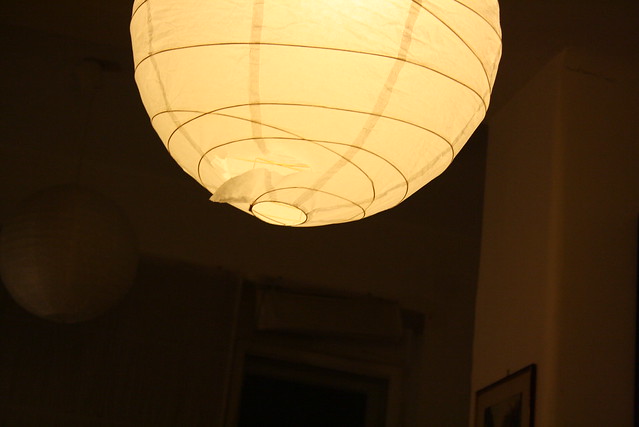Wednesday, 4 January 2012
Difference studies.
T’s blogpost got me philosophising about difference again. Difference is my grand theory, if I have such a thing, only that there isn’t really a theory as such, just a sort of grid through which I perceive the world, in which difference and power are defining notions. It’s all very Foucaldian, I’m afraid.
I started out writing this as a comment to the C. S. Lewis quote, and then realised that it isn’t really a comment on the C. S. Lewis quote.
Experiencing difference is the most important and difficult thing. Often we don’t do it in a profound enough way – either we ignore it or only perceive it in terms of dichotomy, which actually reduces difference into sameness (because you end up with two identical concepts, only one of them has a negative marker). It's wrong but almost inevitable. And as a consequence real understanding fails to materialise.
I actually think that perceptiveness towards difference has to a lot to with your position in power, which is why in terms of language, there is a specifically English perceptual handicap with regards to difference, because *of course* English is the universal language. This is my slightly anti-English prejudice that I like to indulge in. Only it’s not exactly a prejudice, because it’s based on observation, but it’s probably an simplicistic generalisation, or at least it’s not specifically English at all but simply has to do with cultural hegemony. It would be weird if it were specific to Anglophones given the internal heterogeneity of the English language (and the speaking community). But I guess it can be said that many or most English people I’ve meet were monolingual, and I have often been surprised at their lack of understanding and weird way of approaching language difference.
But this is a fragmented thought, as all my thoughts are, and I’m not at all convinced of its accuracy. It might puff away into thin air as soon as I really thought it through. I might come up with equally convincing or unconvincing arguments to refute it. This relativity in my own perception of what I actually think, or if you will, believe, as opposed to the things I think about without really finding any conclusive solution to the problems ... that’s kind of scary and uncomfortable. That’s what my university education has done for me. Made me unable to produce a statement that does not include the words "but then again". To some extent this doubt is good. But it’s also kind of incapacitating. (Help!)
My very humble and doubting nature now makes me realise how ridiculous it is to complain about anybody’s lack of understanding for difference and in the same breath talk about grids and grand theories. Because they too are really quite detrimental to real understanding, aren’t they? Aren’t they another way of just walking through life and reducing difference to sameness, by reducing all experience to the structures that are ready-made in your head? True, but is there really another way of perceiving anything? Da Vinci said that a painter always paints himself, and I guess by the same token all our experiences really are just reflections of our selves.
Not that this is in any way a new insight. No, we all know that.
These are just honestly the things that walk around in my head. I’m somehow quite stuck on this, because the only conclusion I always come to is that there is no conclusion and the only thing I am utterly convinced of is that being utterly convinced of anything would be quite wrong. It’s the post-modern conundrum.
This is not really blog material, because what people want are pretty pictures and song quotes that succinctly and brilliantly describe what I feel. I don’t think I’d enjoy reading what I just wrote, but I’m on a mission to make my genuine thoughts a little more shareable so I can refrain from sharing only shallow mass-approved trifles that don’t really have much meaning. Call it an experiment.
Subscribe to:
Post Comments (Atom)


No comments:
Post a Comment